Suppressed Subconscious Trauma and Circumcision: Unveiling Hidden Psychological Impact
Suppressed Subconscious Trauma and Circumcision: Unveiling Hidden Psychological Impact
Written By ✌️💚🥑🍌 AvocadoJay23 | AdvocatingAvocado
Abstract
Circumcision is often performed in infancy, before an individual has the capacity for conscious memory formation. However, emerging psychological research and anecdotal evidence suggest that circumcision trauma may be stored in the subconscious, remaining dormant until triggered by specific life experiences or awareness. This paper explores the concept of suppressed subconscious circumcision trauma, its potential manifestations, and the psychological mechanisms behind repressed memory retrieval.
Introduction
Circumcision is a deeply ingrained cultural, religious, and medical practice worldwide. While many discussions focus on physical consequences or ethical considerations, less attention is given to the potential subconscious psychological effects. Because circumcision is performed at an age when the brain is highly plastic but lacks explicit memory recall, it is often assumed that there are no lasting psychological effects. However, growing evidence suggests that early trauma can be stored in the body and subconscious mind, influencing emotions, behaviors, and identity in ways that individuals may not consciously recognize.
The Neuroscience of Early Trauma and Memory Suppression
Neuroscientific research demonstrates that traumatic experiences, particularly those occurring in infancy, can be imprinted in the limbic system—the brain’s emotional center. While explicit memories (conscious recall) are not formed before the maturation of the hippocampus, implicit memories (unconscious emotional and physiological responses) are encoded in the amygdala. These memories can manifest later in life as anxiety, depression, dissociation, or somatic distress without an individual’s direct awareness of their origins.
Psychological theories, such as Freud’s concept of repression and Van der Kolk’s research on trauma stored in the body, provide further insight into how early circumcision trauma may persist unconsciously. Bowlby’s attachment theory also suggests that early pain and separation from caregivers—common during circumcision procedures—can disrupt the formation of secure attachment bonds, potentially influencing emotional regulation in later life.
Insights from 'Circumcision, The Hidden Trauma' by Ronald Goldman, PhD
In his book Circumcision, The Hidden Trauma: How an American Cultural Practice Affects Infants and Ultimately Us All, Ronald Goldman, PhD, explores the psychological effects of circumcision and how it can contribute to emotional distress later in life. He argues that circumcision is a traumatic event that disrupts the bond between infants and their caregivers, creating an early experience of pain, fear, and helplessness that can become embedded in the subconscious.
Goldman presents research indicating that circumcised infants exhibit higher levels of stress hormones compared to intact infants, suggesting a physiological basis for early trauma. He also discusses how circumcision can lead to long-term emotional consequences, including difficulties with trust, intimacy, and self-image. According to Goldman, many men who experience unexplained anxiety, depression, or a sense of loss may be unknowingly grappling with the subconscious trauma of their circumcision.
Furthermore, Goldman highlights how cultural normalization of circumcision makes it difficult for men to recognize and validate their own trauma. Because circumcision is framed as a routine medical practice, those who struggle with its psychological effects may feel isolated or dismissed when seeking support. His work underscores the importance of acknowledging circumcision trauma and creating safe spaces for individuals to process their emotions.
Goldman’s research supports the growing body of evidence that early trauma can have lasting psychological effects, even if the individual has no explicit memory of the event. By bringing awareness to these issues, his work contributes to a broader conversation about bodily autonomy, informed consent, and the hidden consequences of circumcision.
Triggers of Suppressed Circumcision Trauma
Many men do not consciously associate emotional distress or certain psychological struggles with their circumcision. However, triggers such as sexual experiences, medical procedures, discussions about bodily autonomy, or exposure to intactivist (anti-circumcision) information can lead to a sudden awakening of repressed feelings. Some individuals report experiencing a deep sense of loss, anger, or violation upon learning about the full extent of circumcision’s impact, suggesting that subconscious trauma had been present but unacknowledged.
Manifestations of Subconscious Circumcision Trauma
Symptoms of suppressed circumcision trauma may include:
- Feelings of discomfort or unease when discussing circumcision
- Sexual dissatisfaction or dysfunction
- Emotional numbness or dissociation from one’s body
- Unexplained resentment towards parents or authority figures
- Anxiety, depression, or PTSD-like symptoms
- Compulsive behaviors related to body image or control
Cross-Cultural Comparisons and Psychological Differences
Cultures where circumcision is not routinely practiced provide valuable insights into the psychological effects of the procedure. Studies comparing circumcised men with intact men in European countries or regions where circumcision is uncommon have noted differences in sexual sensitivity, body image, and overall psychological well-being. Men from non-circumcising cultures rarely report the same sense of loss or trauma, which suggests that circumcision itself—and not just societal attitudes—contributes to the subconscious distress experienced by circumcised individuals.
In contrast, societies that normalize circumcision may contribute to the repression of associated trauma. When a practice is widely accepted, individuals struggling with its effects may be less likely to recognize or validate their emotional distress. This cultural reinforcement can delay healing and self-awareness.
Addressing Opposing Viewpoints
Some proponents argue that circumcision is a minor procedure with no long-term psychological impact, often citing the lack of conscious memory as evidence that it does not cause trauma. Additionally, mainstream medical institutions frequently dismiss claims of circumcision-related distress, reinforcing the belief that any negative emotional response is purely anecdotal or influenced by external advocacy movements.
However, research into implicit memory and trauma-related amnesia challenges this perspective. Studies on early life stressors suggest that even when events are not consciously remembered, they can leave lasting psychological imprints. The high levels of cortisol (a stress hormone) recorded in infants undergoing circumcision indicate that their bodies react strongly to the procedure. Furthermore, psychological models of adverse childhood experiences (ACEs) suggest that painful early medical interventions can contribute to later mental health struggles, even if the individual does not consciously recall the event.
Healing and Addressing Subconscious Trauma
Understanding and acknowledging circumcision trauma is a crucial step toward healing. Psychological approaches such as somatic therapy, trauma-informed counseling, hypnotherapy, and bodywork can help individuals process subconscious distress. Engaging with support communities, such as intactivist groups or men’s healing circles, can also provide validation and pathways toward emotional recovery.
Conclusion
The subconscious effects of circumcision trauma remain an underexplored psychological phenomenon. While mainstream discourse often dismisses the psychological impact of infant circumcision, personal testimonies and emerging research suggest otherwise. By acknowledging the possibility of suppressed trauma and providing therapeutic interventions, individuals can reclaim their bodily autonomy and work toward emotional well-being. Further research in psychology and neuroscience is needed to deepen our understanding of how early trauma shapes subconscious experiences and identity throughout life.
-𝑨𝒗𝒐𝒄𝒂𝒅𝒐𝑱𝒂𝒚𝟐𝟑 ✌️💚🥑
-𝑨𝒅𝒗𝒐𝒄𝒂𝒕𝒊𝒏𝒈𝑨𝒗𝒐𝒄𝒂𝒅𝒐✌️💚🥑🍌
“Revealing the hidden truth, reclaiming autonomy, and igniting awareness.”
Awakening the Hidden Wound: Reclaiming Autonomy, Healing Trauma.
#CircumcisionTrauma #HiddenTrauma #PsychologicalImpact #BodilyAutonomy #MaleRightsMatter #IntactAwareness #HealingFromTrauma #NoConsentNoCut #CircumcisionAwakening #ReclaimYourBody #TraumaInformed #CircumcisionRegret #MentalHealthMatters #UncutTruth #InformedConsent
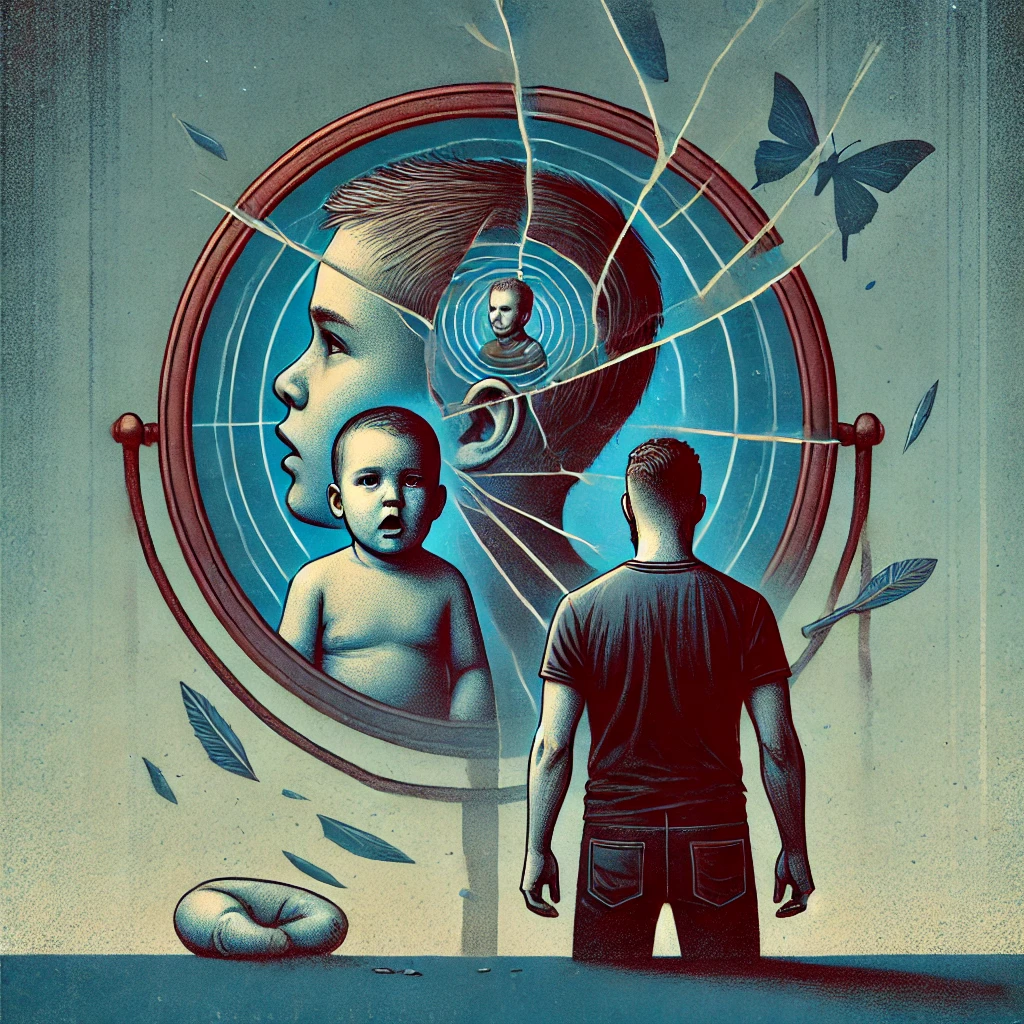
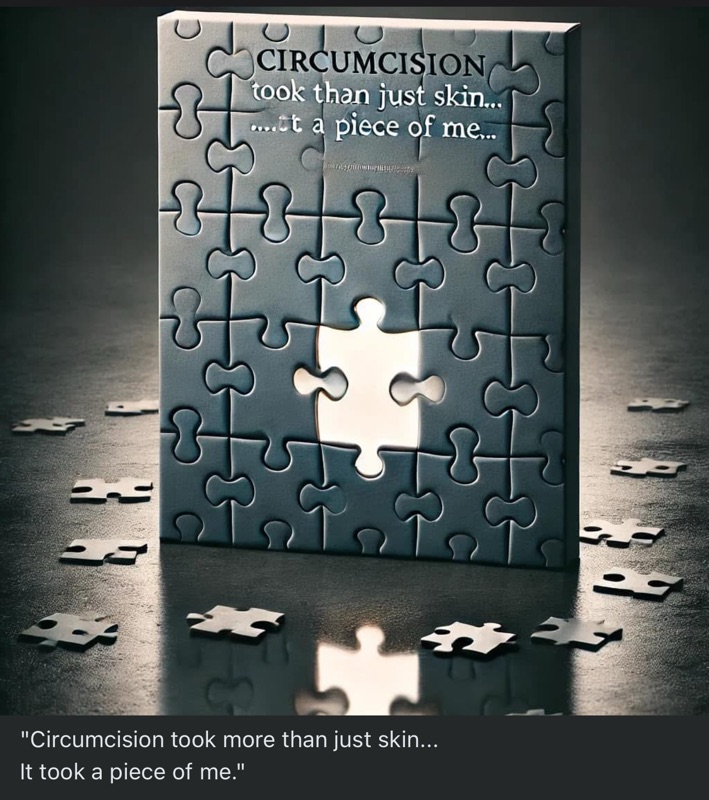
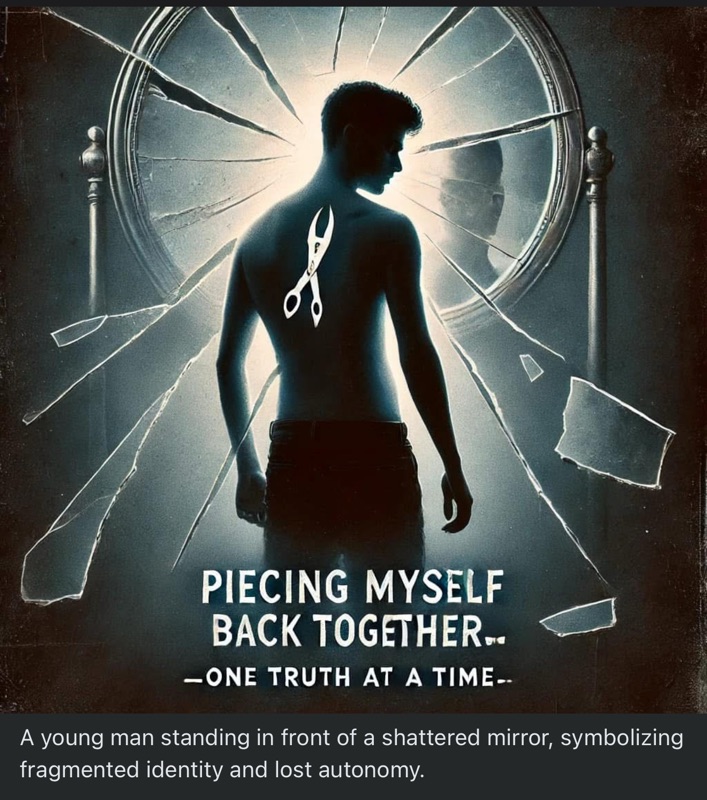

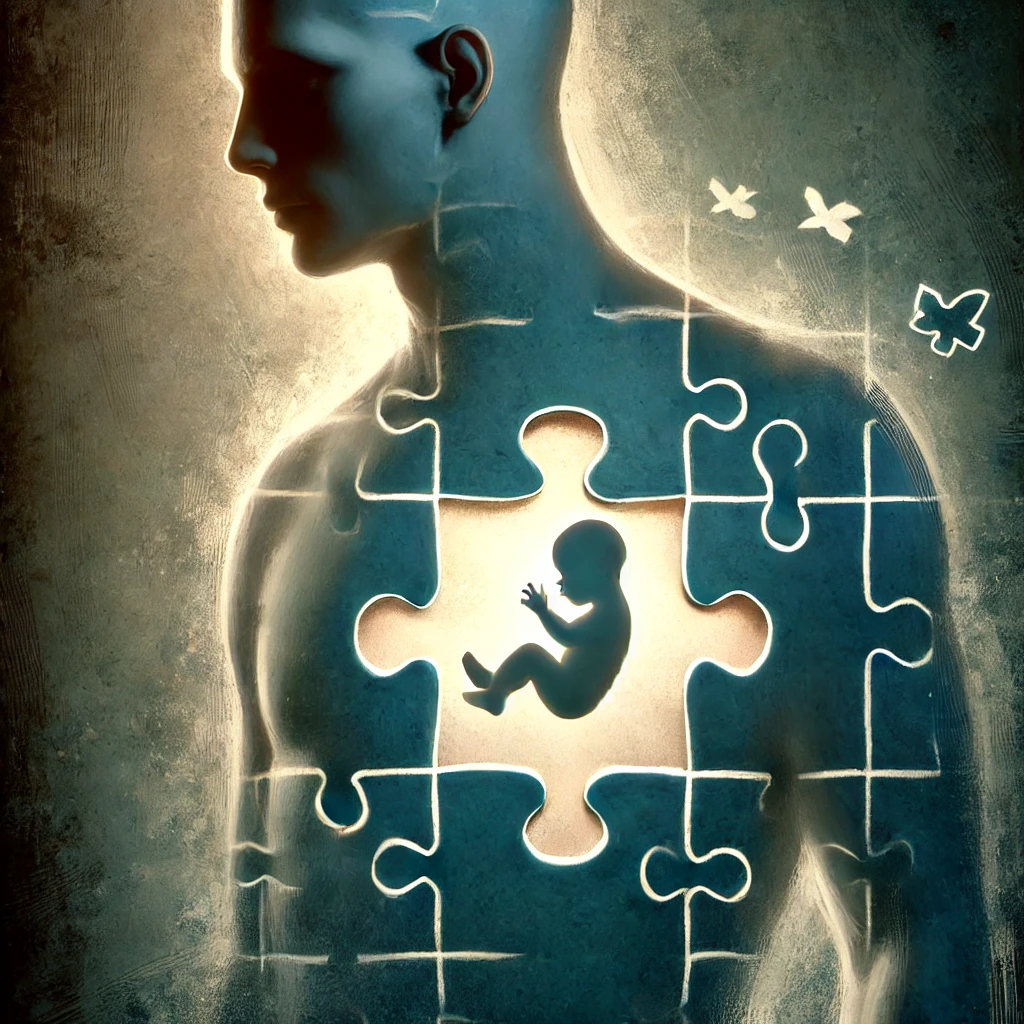
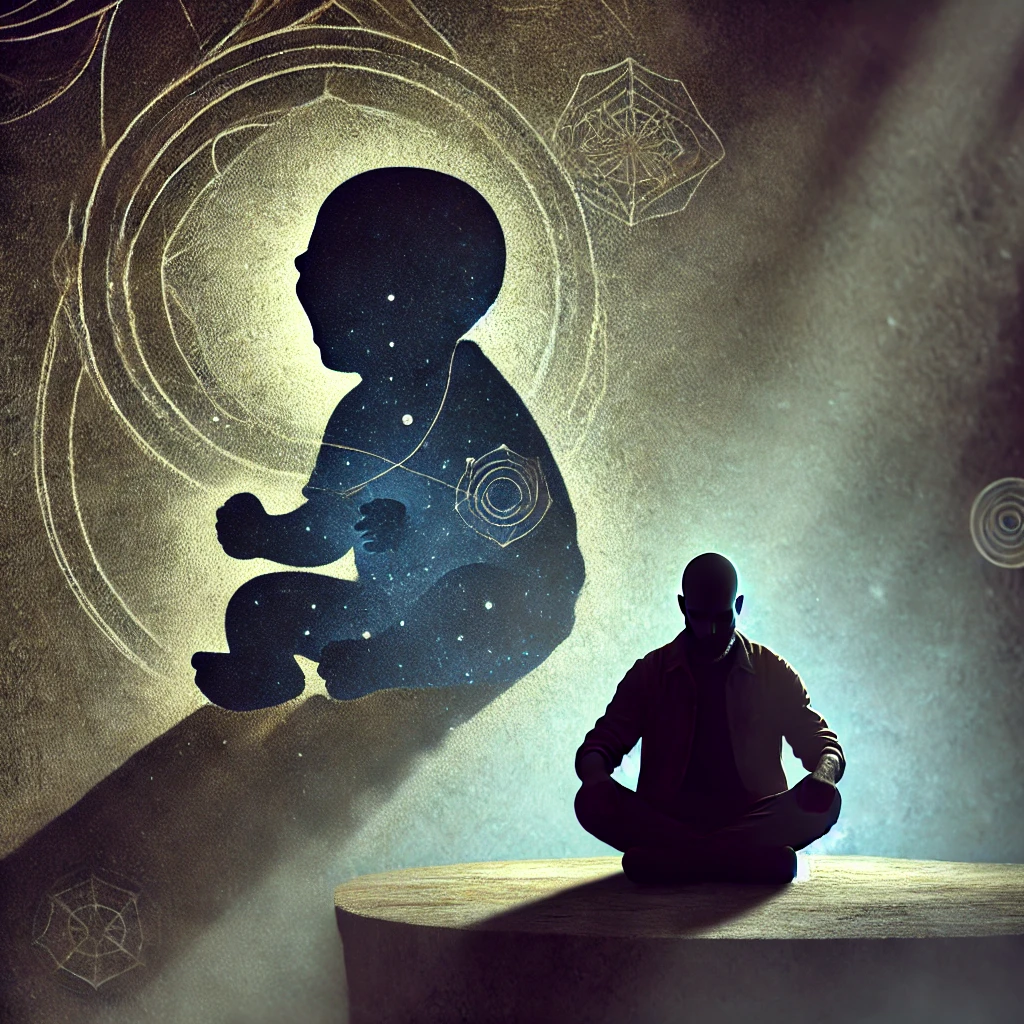
📢 Want to Know the Truth?
👉 Watch Now: The Truth About Circumcision
Eric Clopper’s explosive, eye-opening presentation exposes the hidden truths about circumcision, its impact on men’s health, and the medical industry’s role in promoting it. If you care about bodily autonomy and human rights, this is a must-watch.
🔗 Sex & Circumcision: An American Love Story – Eric Clopper
🔗 https://youtu.be/FCuy163srRc?si=-I0uSf9MEV06bvY9
Comments
Post a Comment